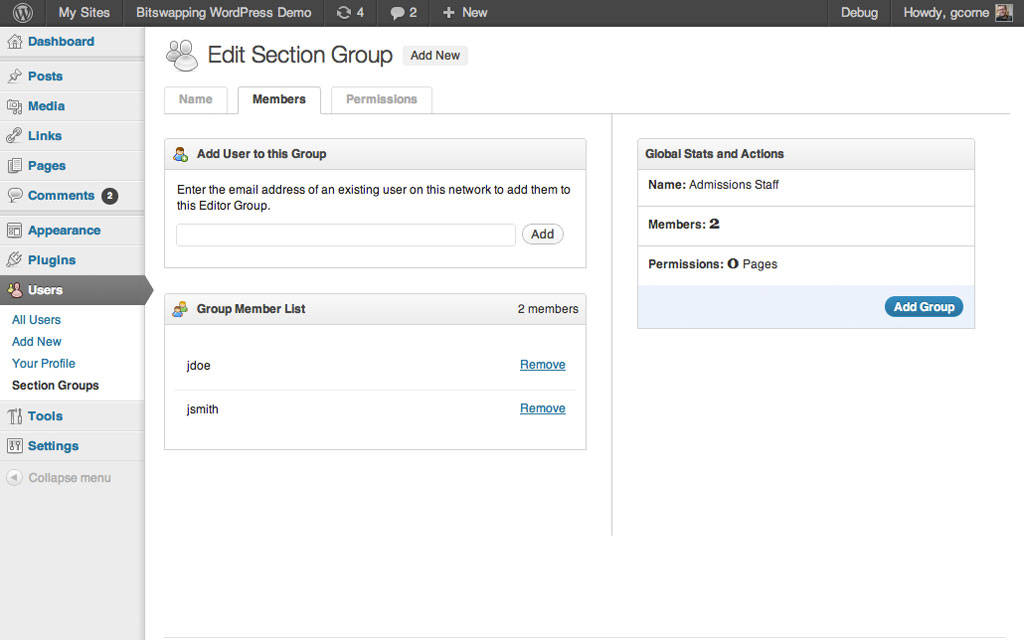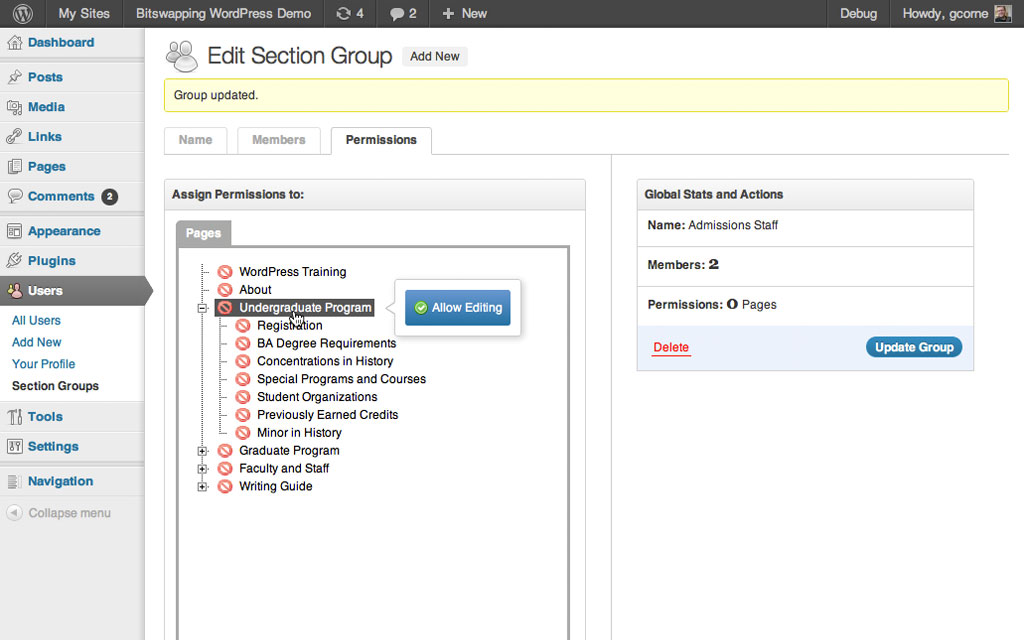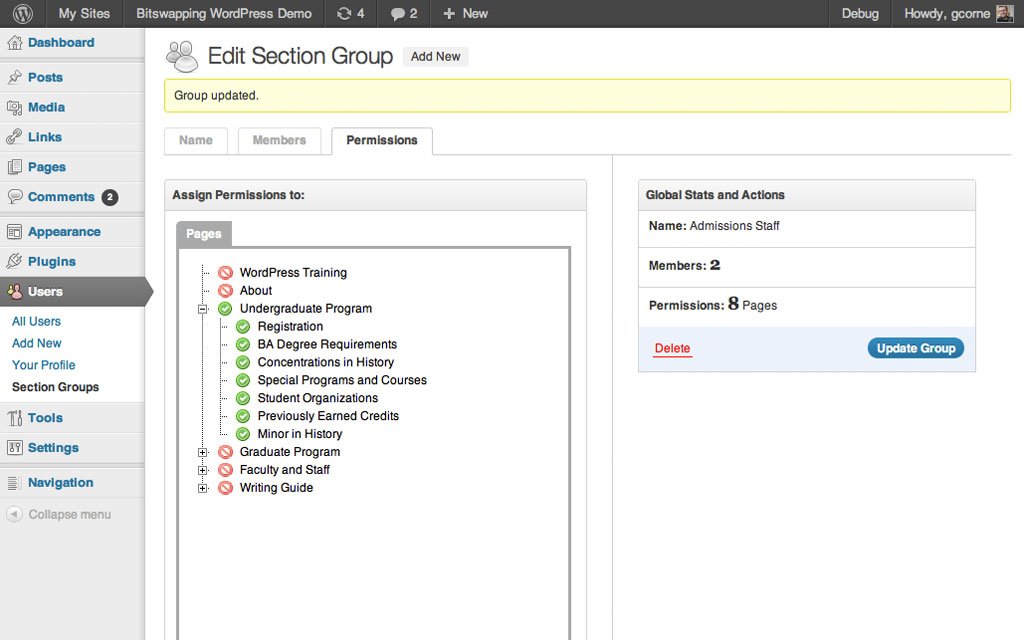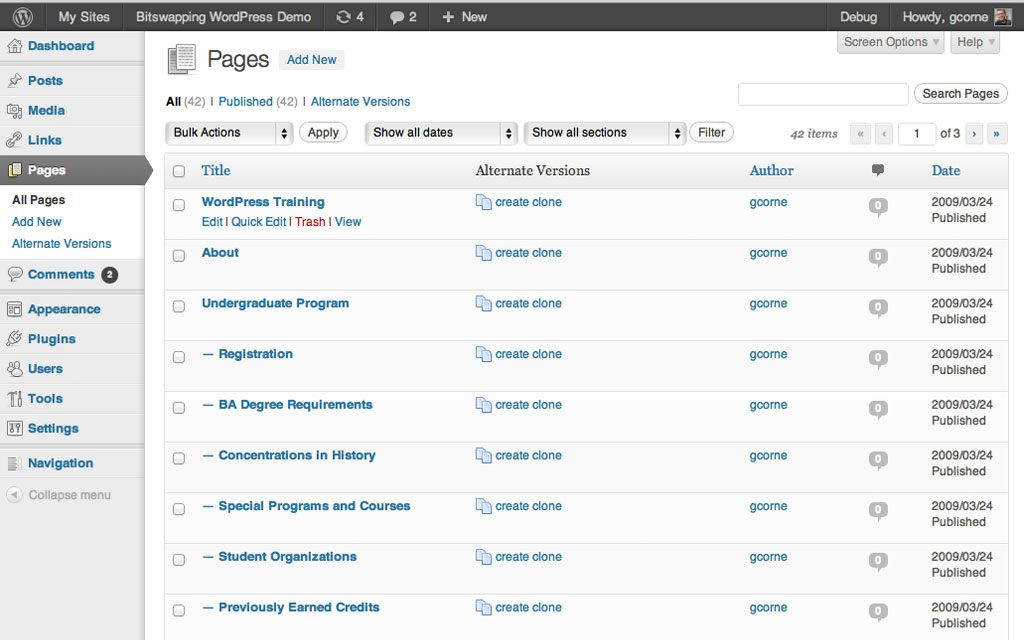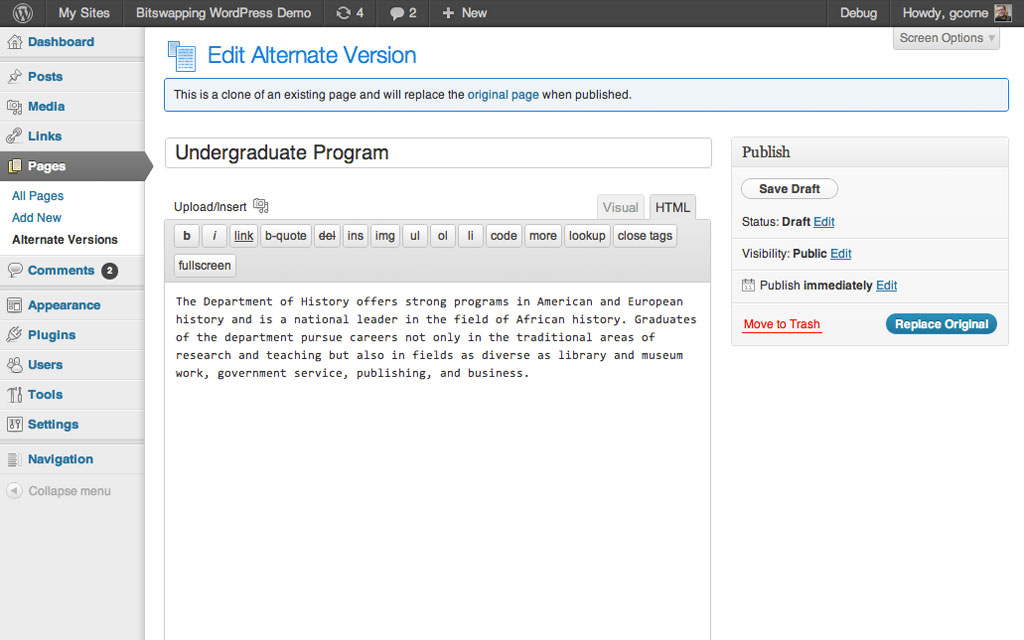I posted the following on BU’s Developers vs. Designers blog:
After almost 4 years building the BU CMS on WordPress MultiSite, the BU WebTeam, which consists of staff from IS&T and Interactive Design, has decided to release some of our plugins to the broader WordPress community. The first two plugins planned for release tackle some of the workflow limitations that content editors have been asking us to address for a few years.
The Problem
The BU CMS contains quite a few large websites. In most cases, the bulk of the content comprises of pages (the “page” post_type), so a significant percentage of the day-to-day content modifications are updates to published content. Unfortunately, WordPress does not provide any controls for restricting the editing of published content or limiting what content a particular user is allowed to publish, so if a user has the capability to edit one page, they can edit all pages. For sites that have more than 50 editors and over 1,000 pages, the primary site administrators worry that ill-advised changes will be made to prominent content by an editor with less experience or without the authority to make the change. In addition to cracking that nut, we wanted to provide a mechanism for staging an edit to a published page so that the change could be worked on directly (with its own revision history), reviewed, previewed, and scheduled for publication.
After reviewing some of the existing plugins that provide this sort of functionality, we decided to write two plugins to address these problems. Both plugins will be released under the GPL.
Design Goals
- Blend naturally into the existing WordPress admin UI
- Simple to use
- Manage permissions with a full view of all post content
- Perform well on sites with more than 2,000 pages
- Support custom post types
BU Section Editing
The BU Section Editing plugin creates a new role: Section Editor and adds screens for managing groups of Section Editors. Each group is granted access to publish and edit published content for individual pages.
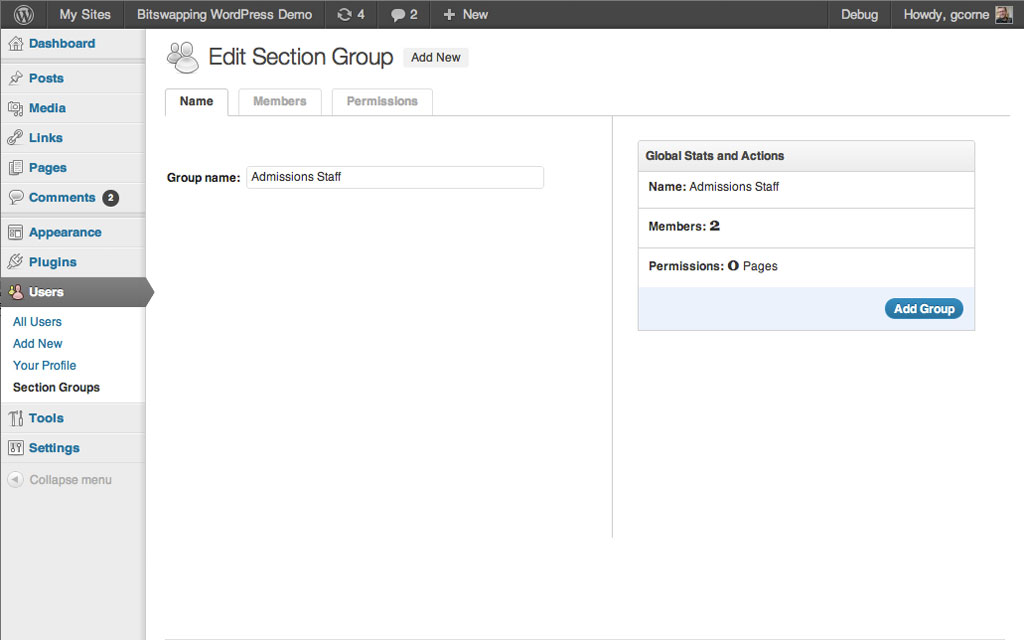
- The group editor borrows UI elements from the post and menu editors.
BU Versions
The BU Versions plugin adds functionality for creating an alternate version of pages, posts, or any public custom post type. After cloning the post, editors are able to make and preview changes. When the changes are ready to be published, the user simply clicks “Replace Original” or schedules the replacement. Users that do not have the “publish_posts” capability are able to create and edit an alternate version, which makes an edit, review, then publish workflow possible even when modifying published posts.
We really want to get feedback from other folks using WordPress on large sites, so don’t hesitate to leave a comment on the original post.
